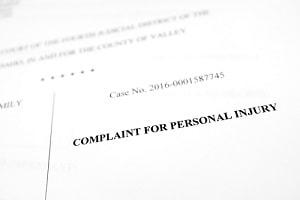Understanding Personal Injury Claims Based on Intentional Torts
Posted on January 27, 2021 in Personal Injury

A personal injury claim is a civil legal action that an injured individual may take against the party that injured him or her. Many personal injury claims are based on the concept of “negligence” or carelessness. Most car accidents, premises liability, and product liability claims are negligence-based claims. However, a personal injury claim may also be founded upon an intentional tort such as an assault, battery, or homicide.
Civil Claims Based on Intentional Wrongdoing
Most personal injury claims are founded upon an accusation of negligence. In a negligence-based claim, the plaintiff must prove that the defendant’s careless or irresponsible actions caused him or her harm. A personal injury claim may also be founded upon an intentionally harmful act such as:
Many intentional torts are also crimes. A personal injury claim is a civil claim that is a separate legal action from any criminal charges that are brought against the defendant. Criminal charges are typically brought by the state while civil claims may be brought by an individual. Criminal charges may bring a perpetrator to justice but criminal consequences do not offer restitution to the victim. A personal injury claim may allow the victim to recover financial compensation for the damages he or she sustained because of the incident.
The Burden of Proof in a Personal Injury Case Based on Intentional Harm
The burden of proof in a personal injury claim based on an intentional tort is different than the burden of proof in a criminal case. In order to secure a conviction against a criminal defendant, the prosecution must prove that the defendant committed the crime “beyond a reasonable doubt.” This means that a juror cannot vote to convict the defendant if he or she has any rational uncertainty of the defendant’s guilt.
The burden of proof in a civil case is lower than that of a criminal case. Civil claims such as personal injury claims must meet the “preponderance of the evidence” standard. The plaintiff satisfies the burden of proof by establishing that the claim is more likely to be true than not true. Because the burden of proof is lower in civil claims, it is possible to bring a successful personal injury claim against a defendant even if the defendant has not been convicted of the crime.
Contact a Greenwich, CT Personal Injury Attorney
If you or a loved one were the victim of a crime, you may be able to bring a civil claim for damages against the perpetrator. To learn more, contact a skilled Greenwich, CT personal injury lawyer from Ivey, Barnum & O’Mara, LLC. Call our office today at 203-661-6000 to schedule a free, confidential consultation.
Source:
https://www.nytimes.com/1997/02/05/us/civil-jury-finds-simpson-liable-in-pair-of-killings.html










